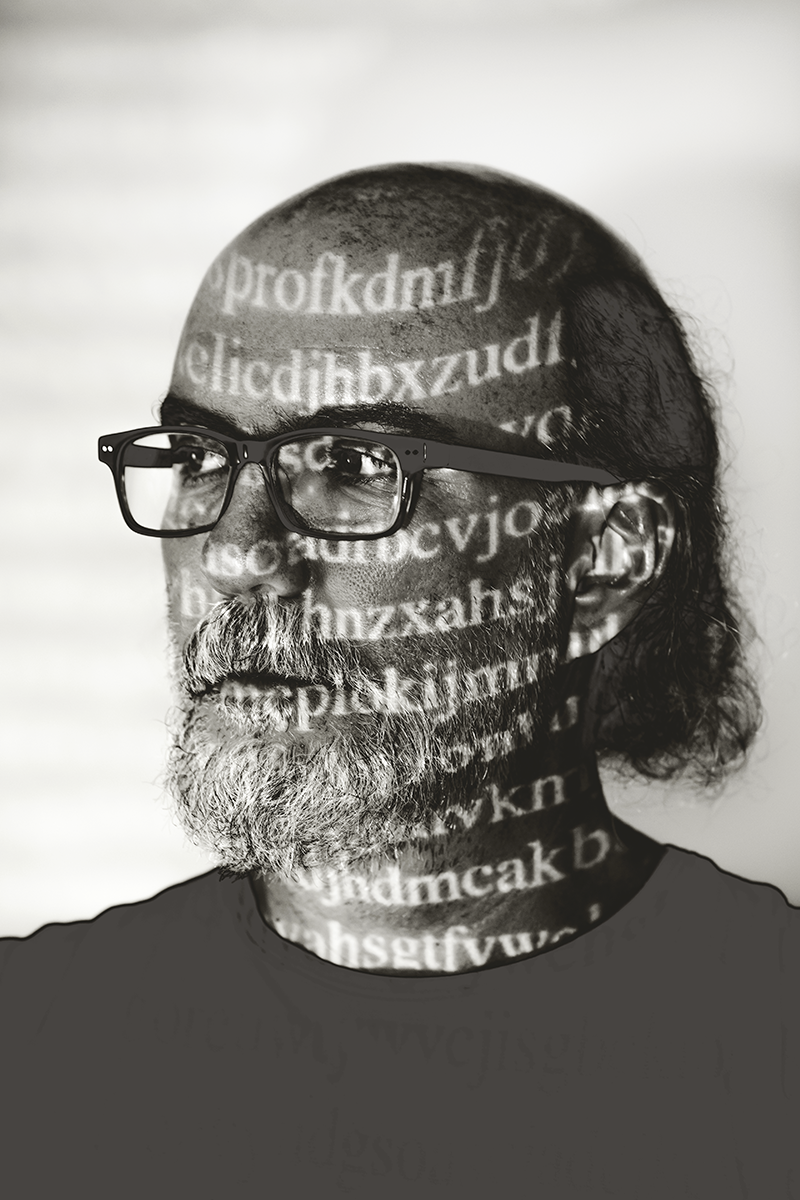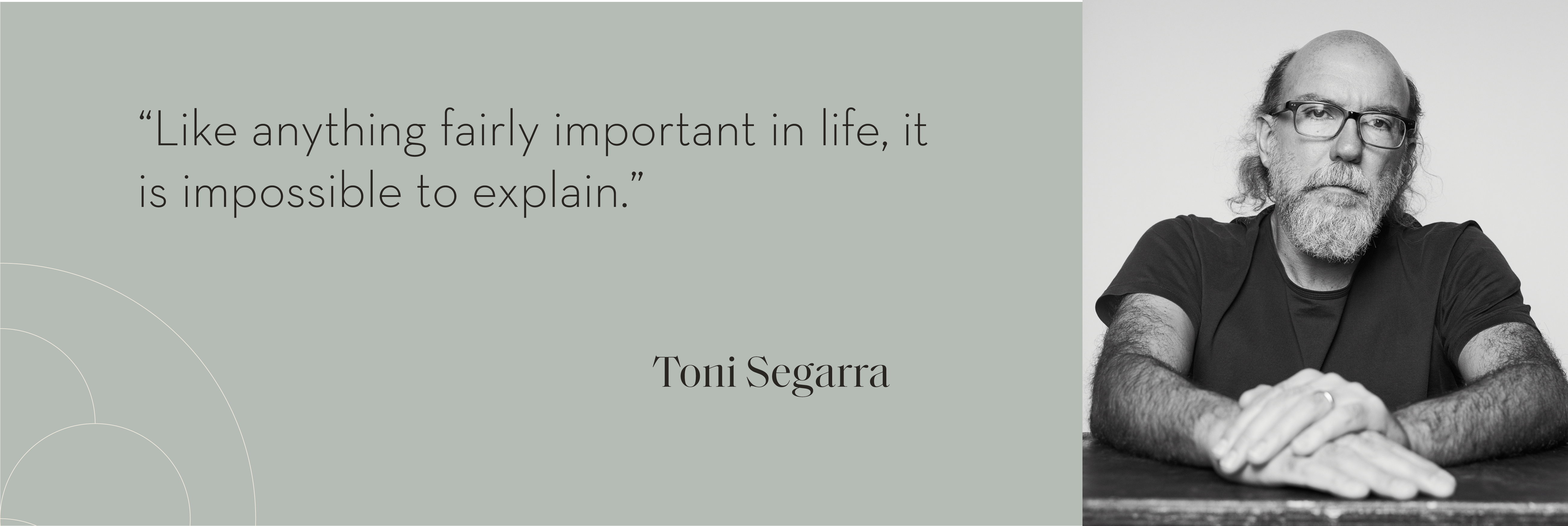Toni Segarra: ‘These days, absolutely anything can be made into advertising’
He is one of the most celebrated advertising creatives of our times. The only Spanish name to feature in Shots magazine's ranking of the 100 top creative minds and the best advertising creative of the 20th century according to a sector survey by Anuncios magazine. He has even bagged a spot on the Forbes list of the 25 most influential people in Spain. ‘Te gusta conducir’ (Do you like to drive) (BMW), ‘Bienvenido a la República Independiente de tu Casa’ (Welcome to the Independent Republic of your Home) (IKEA), ‘¿A qué huelen las nubes?’ (What do clouds smell like?) (Evax) and ‘Aprende a usar la televisión’ (Learn to use the television) (TVE), which featured the famous dog Pippin back in 1989, are just a handful of examples of his extensive, much-awarded advertising achievements.

You've been in the advertising world for over 30 years. What was great about the advertising sector back then, and what are the best things about it today?
I was lucky enough to experience the golden age of the spot, an amazing format that combines a whole host of artistic languages with the challenge of brevity. It is a fantastic intellectual and poetic exercise. As the genre reached maturity we were forced to strive for excellence, which was simultaneously exhausting and extremely compelling, as it requires you to work with the very best talent in the field. I personally trained with Swiss, German, English and US graphics and have always been happy using this so-often-overlooked platform. What I love today is the huge variety of registers and the vast possibilities afforded by commercial communication: documentaries, TV programmes, shorts, buildings, books, music, design in all its forms… Absolutely anything can be made into advertising, in its broadest sense. It's a bit like being 8 years old and living in the toy department at Harrods.
In your last book, La interrupción (The Interruption), which you co-wrote with Edu Pou, you talk about what the idea of interruption means for the advertising sector. Can the notions of advertising and interruption ever be separated?
It would certainly appear not. Advertising tends not to be something we look for or are drawn to, so it is almost guaranteed to be an interruption. But what became clear chatting to Edu was that for better or for worse, a world without interruptions, without surprises, without the unexpected, is essentially a prison; a cage, albeit a golden one. I'm afraid interruptions are a symptom of freedom.
"Advertising tends not to be something we look for or are drawn to, so it is almost guaranteed to be an interruption. But a world without interruptions, without surprises, without the unexpected, is essentially a prison; a cage, albeit a golden one."
Toni Segarra
Does a good ad come from a great idea, flawless execution or a daring client?
Strategy, concept, idea, execution, team, a great client who trusts the process and a little bit of luck. It's a combination of lots of things.
You have spoken before about the parallels between advertising and poetry. Where is the poetry in advertising?
The need to reach people's hearts quickly, driven by an illuminating intuition that generates a sense in them of what we are trying to convey. You cannot explain if no-one is listening. I always like to quote Joan Margarit, who described poetry as a shortcut to the truth. Our mission is to find the beauty, the little miracle, the glimmer of fascination in something as unremarkable as a car, a muffin or a sanitary towel. Finding beauty in the banal is what good poets manage to do. Poets also see sadness and the horror, of course. We like to look on the bright side of life, in the immortal words of Monty Python in The Life of Brian.
Where do you stand on advertising with influencers?
It is a digital variation on advertising with celebrities, with huge potential. The difference is that in this case, the celebrities have built an audience, which they manage. That means that as well as being famous, they are also a media channel in their own right. The fact that they control both aspects - prominence and distribution - means that they really need to believe the messaging themselves, because they engage so naturally with their audiences. Which means they are actually an agency too, no less.
And what about the observation that TV is losing ground as a media channel for audiences?
Well, I always say that however things are right now is normal. It was a wonderful anomaly to have one channel that afforded access to everyone. If you think about it, that is very rare. Practically Orwellian.
Is the future of advertising in the metaverse?
It is another place people will be looking, and wherever there's an audience, there will be brands trying to sell. It won't work for all products, but it certainly will for some. I think it is an incipient channel, a long way off reaching maturity, and the smart thing to do is to watch and wait rather than steaming in and trying to colonise it. We are irresistibly - and often ridiculously - attracted to anything new.
Are you good with technology? Would you say it has contributed a lot to advertising?
I'm good with technology, although I try to keep it at arm's length in order to better understand it. I have always believed that, with the necessary caution, technology has made us better as humans; better connected, more empathic and more powerful. That's how I see it. Like any tool, it can also obviously be used for evil.
And I would say that more than contributing to advertising, it has changed it completely.

Property sector
Do you think the property sector does well at advertising? What would you change?
I think the sector has always had its own channels, and that is where we go when we need to buy. These tend to be life-changing decisions, and the approach required is gradual, and often very extensive and intensive. Advertising can help, but it is more about personal and human engagement.
Are there any property sector campaigns that have really stuck with you?
I really like Idealista's voice; its tone is very personal, very compelling.
What would be an ad-worthy home for you? Do you remember any in particular?
A fake home. Real homes are messy; full of wonderful real life. That's very difficult to get across in advertising. I know because we tried it loads of times for Ikea, and it was hard.
How would you sell a house?
The same as anything else. Find its best angle and enhance it, and play down or hide anything less positive as much as possible. It's exactly what we all do in our everyday lives, in our photo albums, on social media, at a job interview or on a date.
What would your perfect house be like? Do you apply your creativity to decoration and other design elements in your home?
I've been living with the best decorator and architect I know since I was 22. I'm very happy in the spaces she creates. And I'm fully aware of how hard she works to create them. I live in her creativity, and I live very well.
I understand that Mallorca is one of your favourite places to rest. What makes it so special to you?
We discovered southern Mallorca in August 1984. I think we both felt very deeply that we had found our place in the world. That feeling is a large part of the reason we spend our holidays there, naturally. Over the years, we have grown and built a family there. We are bound by a very deep bond. Like anything fairly important in life, it is impossible to explain.